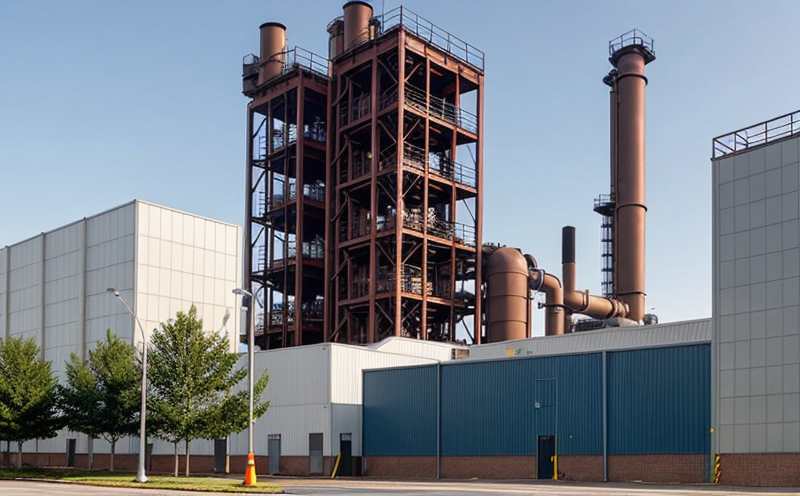ISO 22000 Food Safety Management in Processing Facilities Testing
The ISO 22000:2018 standard provides a comprehensive framework for food safety management systems that is designed to minimize risks associated with food safety hazards. This certification ensures that food production and processing facilities comply with international best practices, thereby protecting public health.
Our laboratory specializes in providing ISO 22000 compliance testing services tailored specifically for industrial manufacturing and processing sectors. Our expertise lies in ensuring that your facility meets the stringent requirements of this standard through rigorous testing procedures which include but are not limited to:
- Reviewing food safety policies
- Evaluating hazard analysis and critical control point (HACCP) plans
- Inspection of sanitation controls
- Assessment of training programs for personnel involved in food handling
The process begins with a detailed review of your current food safety management system against ISO 22000 criteria. Our team then conducts on-site inspections to assess the implementation and effectiveness of these systems within your facility. We also provide training sessions aimed at improving knowledge about food safety practices among employees.
Our services are particularly beneficial for companies looking to:
- Obtain ISO 22000 certification
- Implement corrective actions recommended by external audits
- Avoid penalties associated with non-compliance issues
- Enhance reputation and customer trust through adherence to global standards
We use state-of-the-art equipment and methodologies that adhere strictly to international norms such as ISO, ASTM, EN, IEC etc., ensuring accurate results every time. Our goal is not only to help you achieve certification but also to assist in maintaining continuous improvement of your food safety management system.
Applied Standards
The ISO 22000 standard integrates elements from various other internationally recognized standards such as HACCP, GMP (Good Manufacturing Practices), and SSOPs (Sanitation Standard Operating Procedures). By doing so, it creates a harmonized approach towards ensuring food safety throughout the entire supply chain.
At our laboratory, we focus on applying these integrated approaches during testing. For instance:
- We conduct HACCP plan reviews to identify potential hazards and establish control measures
- Our GMP assessments ensure that all aspects of good manufacturing practices are followed, including hygiene controls, process controls, and quality assurance systems
In addition, we perform SSOP evaluations which look at the sanitation procedures used in food production environments. These include water treatment processes, cleaning methods for equipment and facilities, as well as pest control measures.
Industry Applications
This service is particularly relevant to industries where food safety is paramount - such as meat processing plants, dairy production units, bakery factories, and beverage manufacturers. In these sectors, maintaining strict adherence to ISO 22000 standards can significantly reduce the risk of contamination leading to recalls or product withdrawals.
For example, in a meat processing plant, our testing service would involve checking for pathogen presence through microbiological sampling and analysis. Similarly, in a dairy facility, we might examine milk samples for bacterial counts while also verifying that all cleaning procedures are effective.
The results from these tests play an integral role in helping facilities maintain their certifications under ISO 22000. They provide valuable insights into areas where improvements can be made, ensuring not just compliance but continuous enhancement of food safety measures.
Environmental and Sustainability Contributions
Incorporating environmental considerations into ISO 22000 ensures that food safety is balanced with sustainability practices. This means minimizing waste, reducing energy consumption, and promoting the use of sustainable ingredients.
Our laboratory plays a crucial role in supporting this aspect by:
- Evaluating resource efficiency during production processes
- Assessing waste management practices related to food production
- Reviewing the sourcing of raw materials for their environmental impact
By integrating these sustainability factors into our testing protocols, we contribute positively towards creating more eco-friendly and responsible industrial manufacturing environments.





